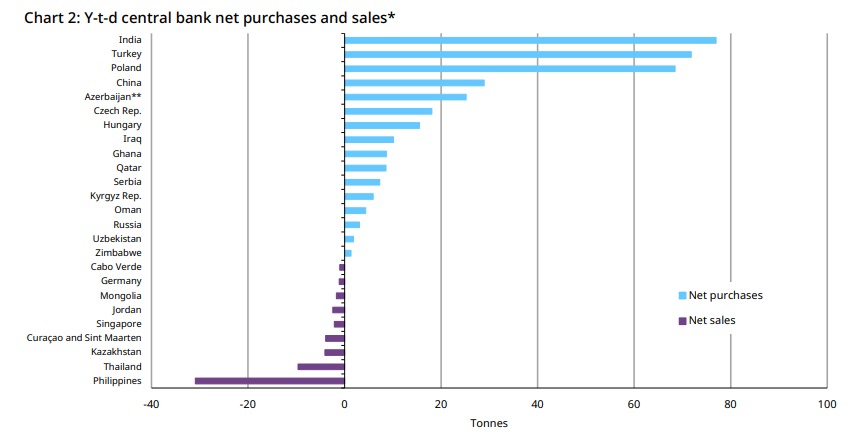
By Senyo M ADJABENG
Today’s workforce presents unique challenges and opportunities for talent acquisition professionals. As Generation Z (Gen Z) enters the workforce in increasing numbers, organizations have no choice than to rethink their strategies to attract, engage, and retain this dynamic group of ‘newbies’.

Born between 1997 and 2012, Gen Z brings a fresh perspective on work, prioritizing purpose, flexibility, and technology. To successfully integrate them into the workplace, businesses must understand their values and adapt recruitment practices that are the best fit.
Talent acquisition is a strategic workplace concept that goes beyond traditional recruitment to focus on attracting, engaging, and retaining high-quality candidates aligned with an organization’s long-term goals. Unlike recruitment, which primarily addresses immediate hiring needs, talent acquisition adopts a forward-thinking approach, considering the future workforce requirements and the broader organizational vision.
At its core, talent acquisition involves a deep understanding of the company’s culture, values, and strategic objectives to identify candidates who not only possess the necessary skills but also fit seamlessly into the organization’s ethos. This strategic function incorporates market research, employer branding, workforce planning, and relationship-building with potential talent pools.
Talent acquisition emphasizes building a strong employer brand to make the organization an attractive destination for top-tier talent. It leverages data-driven insights to understand industry trends, competitor benchmarks, and candidate preferences, enabling businesses to tailor their outreach and engagement strategies effectively.
This function also integrates advanced technologies such as artificial intelligence, predictive analytics, and automated workflows to streamline processes and improve the candidate experience. Moreover, talent acquisition plays a critical role in fostering diversity and inclusion by ensuring that hiring practices are equitable and that the organization actively seeks to build a diverse workforce.
By aligning hiring efforts with strategic goals, talent acquisition helps companies adapt to evolving industry demands, enhances workforce capabilities, and positions the organization as a leader in its field.
Understanding Gen Z’s Workplace Priorities
Unlike previous generations, Gen Z places a high value on meaningful work. According to Deloitte’s Global 2023 Gen Z and Millennial Survey, 49% of Gen Z respondents said they prioritize jobs that allow them to make a positive impact on society or the environment. Organizations that highlight their social responsibility initiatives and sustainability efforts are more likely to attract Gen Z talent.
The pandemic has influenced how Gen Z perceives work. Flexible work arrangements, including remote work options, hybrid models, and flexible schedules, are no longer perks but expectations. Forbes reports that 74% of Gen Z employees prefer working for companies that offer flexible work schedules.
As digital natives, Gen Z has grown up in a tech-driven world. They expect technology to be seamlessly integrated into the workplace, from recruitment processes to daily operations. Organizations that invest in advanced recruitment tools, such as artificial intelligence (AI)-driven applicant tracking systems and gamified assessments, can appeal to this demographic.
Gen Z values workplaces that embrace diversity and foster inclusivity. Glassdoor found that 76% of Gen Z candidates consider a company’s DEI initiatives when deciding where to work. Employers must ensure their messaging and workplace culture align with these values.
Strategies for Recruiting Gen Z Talent
Platforms like TikTok, Instagram, and LinkedIn are vital for reaching Gen Z candidates. Companies like PwC and Accenture have successfully used social media campaigns to showcase their work culture and career opportunities. Creating authentic and engaging content is key to capturing Gen Z’s attention.
Indeed, social media has become a transformative factor in talent acquisition, especially when targeting Generation Z, a cohort that lives and interacts extensively in digital spaces. For Gen Z, social media is more than a communication tool; it is a primary source of information, a platform for expression, and a space for discovering opportunities. This makes it a critical channel for organizations aiming to attract and engage this tech-savvy and purpose-driven generation.
The first aspect of social media’s influence is visibility. Social media platforms like LinkedIn, Instagram, TikTok, and even Snapchat are increasingly used by companies to showcase their culture, values, and job opportunities. Unlike traditional job boards, these platforms allow companies to create dynamic, engaging content that resonates with Gen Z’s preference for authenticity and storytelling.
For instance, behind-the-scenes videos of office life, employee testimonials, or short, creative job advertisements can provide a window into an organization’s culture, making it more appealing to prospective Gen Z candidates.
Social media also facilitates two-way communication, which is essential for engaging with a generation that values interaction and feedback. Through comments, direct messages, and interactive posts like polls or Q&A sessions, employers can build a relationship with potential candidates even before formal recruitment begins.
This fosters a sense of connection and transparency, qualities that Gen Z seeks in their employers. Another critical aspect is the alignment of employer branding with Gen Z’s values. Social media gives organizations the platform to highlight their stance on social issues, diversity, sustainability, and community impact. When companies actively demonstrate their commitment to causes that Gen Z cares about, they increase their attractiveness as employers.
Additionally, social media-driven hiring allows for a personalized and targeted approach. By using advanced analytics and algorithms, companies can tailor their job postings and advertisements to reach specific demographics based on location, interests, and professional skills. This precision targeting is particularly effective in attracting Gen Z, who expect personalized experiences in every aspect of their lives.
Again, the gamification of recruitment through social media is another emerging trend. Some organizations use platforms like Instagram or TikTok to host challenges, quizzes, or contests that engage users while subtly assessing their skills and interest in the brand.
This innovative approach not only captures attention but also aligns with Gen Z’s preference for interactive and enjoyable experiences. Companies that leverage social media strategically can build a strong employer brand, create meaningful connections with Gen Z talent, and position themselves as forward-thinking employers in a competitive labor market.
Gen Z is ambitious and seeks opportunities for professional development. Highlighting career progression, training programs, and mentorship opportunities during the recruitment process can help attract top talent. A one-size-fits-all approach doesn’t resonate with Gen Z. Personalizing communication and tailoring job descriptions to emphasize roles’ impact and growth potential can create a more compelling proposition.
Gen Z appreciates feedback and transparency during the recruitment process. Clear communication about timelines, expectations, and feedback loops builds trust and enhances the candidate experience.
Challenges in Gen Z Talent Acquisition
Acquiring Gen Z talent comes with a distinct set of challenges, shaped by the generation’s unique values, expectations, and experiences. These challenges require organizations to rethink traditional hiring approaches and adopt strategies that align with the aspirations of this dynamic workforce. One significant challenge lies in Gen Z’s high expectations for workplace flexibility.
Having grown up during the rise of the gig economy and experienced the work-from-home culture during the pandemic, Gen Zs prioritize remote and hybrid work arrangements. Organizations that fail to offer flexible options risk losing out on top talent. However, balancing flexibility with the need for in-person collaboration can be difficult, especially for roles requiring physical presence or team cohesion.
Another challenge is compensation and benefits expectations. Gen Zs are acutely aware of their market value, thanks to easy access to salary information on platforms like Glassdoor and LinkedIn. They often expect competitive pay and benefits packages that go beyond traditional offerings to include wellness programs, mental health support, and learning opportunities.
Meeting these demands can strain budgets, particularly for smaller organizations. The rapid job-hopping tendency of Gen Z also presents a challenge. Unlike previous generations who sought long-term stability, Gen Z often prioritizes personal growth and experiences over tenure.
This has resulted in shorter average job durations, which can disrupt workforce continuity and increase recruitment costs. Employers must find ways to build strong retention strategies while accommodating their desire for variety and professional development. Diversity, Equity, and Inclusion (DEI) expectations are another hurdle. While Gen Zs prioritize workplaces that actively champion DEI, they also demand authenticity.
The generation’s digital-first mindset poses challenges in recruitment methodologies. Gen Z expects seamless, tech-enabled hiring processes, from application submission to virtual interviews. Companies using outdated recruitment technologies or cumbersome application processes may struggle to engage them. Moreover, maintaining a personal touch in highly automated recruitment workflows is an ongoing balancing act.
Engaging Gen Z on their preferred platforms adds complexity. Social media is a primary tool for reaching Gen Z candidates, but effectively navigating platforms like TikTok, Instagram, and Snapchat requires creativity and an understanding of their communication style. Crafting authentic, engaging, and visually appealing content is a time-intensive process that demands specialized skills and resources.
Gen Z is transforming the talent acquisition landscape with its unique values and expectations. By prioritizing flexibility, purpose, and technology, and by demonstrating a commitment to DEI, organizations can effectively attract and retain Gen Z talent. Businesses that fail to adapt risk losing out on a generation poised to shape the future of work.
References for Further Reading…
Deloitte. (2023). Deloitte Global 2023 Gen Z and Millennial Survey. Retrieved from Deloitte.com
Glassdoor. (2023). What Gen Z Wants in the Workplace. Retrieved from Glassdoor.com
Forbes. (2023). Flexibility in the Workplace: Why Gen Z Employees Demand It. Retrieved from Forbes.com
The post Talent Acquisition: The Gen Z factor appeared first on The Business & Financial Times.
Read Full Story



















Facebook
Twitter
Pinterest
Instagram
Google+
YouTube
LinkedIn
RSS